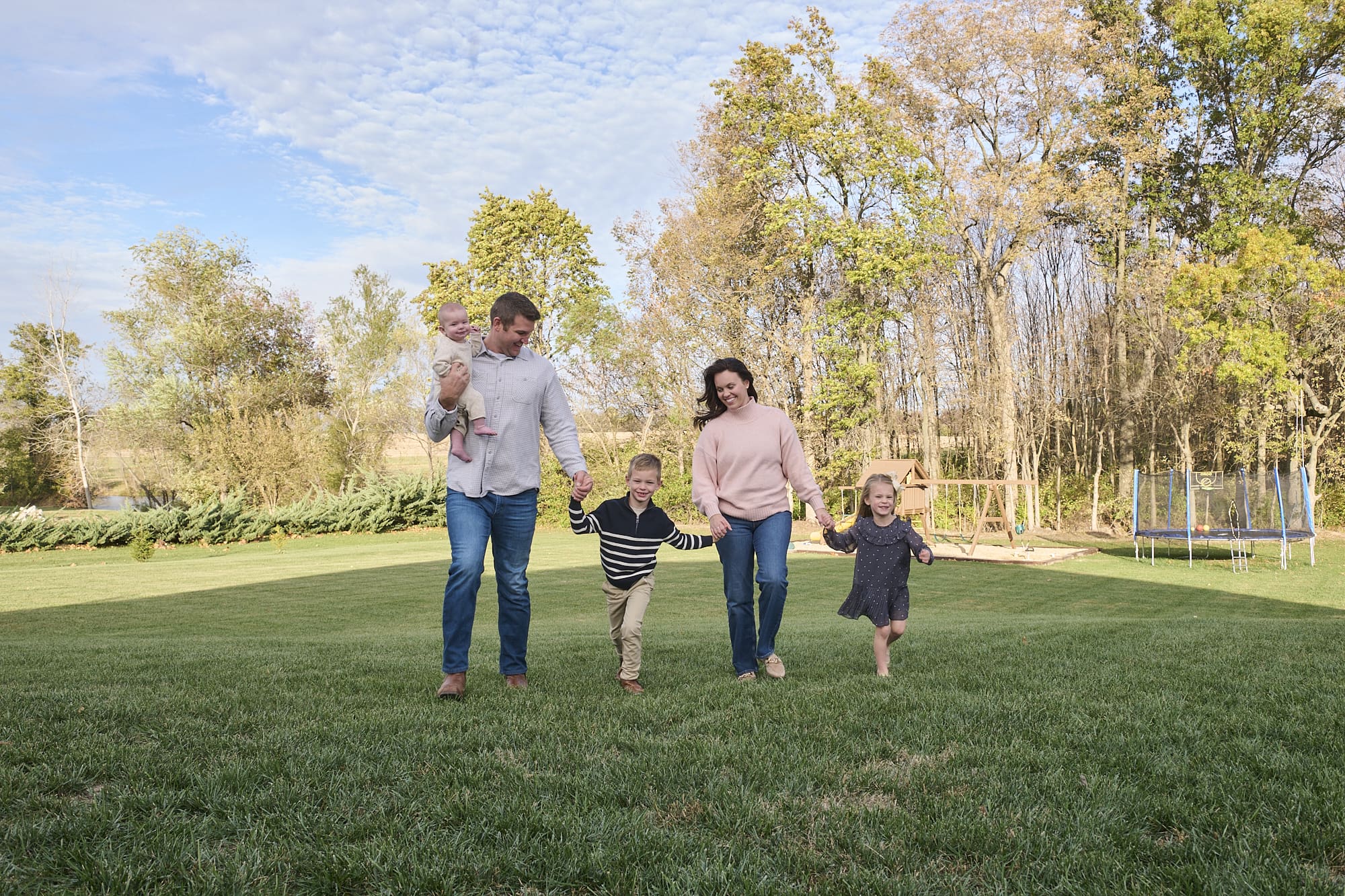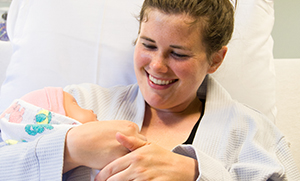Alison’s Premature Delivery and the Care That Made the Difference
Alison (Ali) and Greg Schulte were eagerly awaiting the arrival of their third child, a son they were naming George. When Ali saw her obstetrician at 32 weeks, her pregnancy was progressing without any complications.

However, 10 days later, at 4:30 in the morning, Ali’s water broke. “I have a history of fast labor and knew we had to get to the hospital.” After calling her obstetrician, the Schultes drove 15 miles to Memorial Hospital in Shiloh, the closest hospital, because she wouldn’t make it to the hospital where she intended to deliver. When she arrived, Ali was immediately taken to the obstetrical emergency department (OBED), where the ob/gyn hospitalist confirmed that her water had broken. Donna Stephens, DNP, RNC-OB, CENP, director of the Family Care Birthing Center, explains that Memorial Hospital is the first hospital in the Shiloh area to offer an OBED dedicated to providing 24/7 emergency care to pregnant patients with medical needs that may arise during pregnancy after 20 weeks. “Whether patients come in with a life-endangering emergency or a less urgent need, they are evaluated, treated and cared for by an experienced team of ob/gyn hospitalists and health care professionals,” she says.
With her contractions coming closer, Ali was moved to the Family Care Birthing Center, adjacent to the OBED, where the team of doctors and nurses were waiting for her. Knowing she would deliver a preemie, Ali was worried that there would be problems. “Even though things were moving fast, everyone was calm and reassuring,” she says.
Before delivery, Haley Friedman, MD, a Washington University* neonatologist at Memorial Hospital, talked to Ali and Greg, explaining that the Level 2-E special care nursery team would be in the room for delivery to care for George. Also, because Ali was ready for delivery, there wasn’t time for an epidural. “My nurses, Gina and Sue, were wonderful. They became my cheerleaders, providing encouragement and supporting me through delivery,” Ali says.
George was born at 6:15 a.m. and weighed 5 pounds, 5 ounces. Ali held him on her chest for a few seconds. Then, the nursery team took him to the nearby baby bed for an initial assessment before moving him to the special care nursery.
After Ali recovered from the delivery, she visited the special care nursery so she could see George. “It was very difficult seeing him in an incubator hooked up to breathing tubes and monitors,” she says. “But Dr. Friedman understood how I was feeling. She gave me a hug and told me that George was a fighter. She explained his care plan, assuring me he was receiving excellent attention and support.”
Ali recovered in the Family Care Birthing Center for three days before being discharged home, but George’s stay was extended. “It was hard going home without George,” she says. “Even though I worried about him, I knew he was receiving excellent care. I also knew that if he needed more advanced care, it was available.”
Stephens says, “Pediatricians from St. Louis Children’s Hospital provide coverage for all newborns at our Family Care Birthing Center, including those in the Level 2-E special care nursery.” She adds that if a newborn is critically ill or needs more specialized care, they are transferred to St. Louis Children’s Hospital Level 4 newborn intensive care unit (NICU). “In some instances, when infants no longer need Level 4 NICU care but aren’t ready to go home, they can transfer back to Memorial Hospital to receive the same exceptional care in a nurturing environment close to home.”
During George’s stay in the special care nursery, Ali was there every day and “roomed in,” staying at the hospital to be near George while Greg was at home with Henry (6 years old) and Clara (3 years old). “Being right down the hall helped with bonding and feedings. I was also pumping breast milk that the nurses gave George through his feeding tube,” Ali says.
After 17 days, George weighed 6 pounds, was feeding well and was ready to go home One month later, Ali returned to Memorial Hospital for an outpatient lactation consultation to help her with breastfeeding. “George was struggling with latching, and both of us were frustrated and ready to give up. However, the lactation consultant provided alternative positions that worked and offered words of encouragement,” she says. “I was so grateful for her advice and that she validated my feelings.” Looking back on her experience, Ali says that the care she received was beyond her expectations and made a difference. “Everyone was understanding and compassionate. I’m thankful for the teams involved in my care and that Memorial Hospital is so close to home.”
*Clinical services in Illinois are provided by Washington University Physicians in Illinois, Inc


